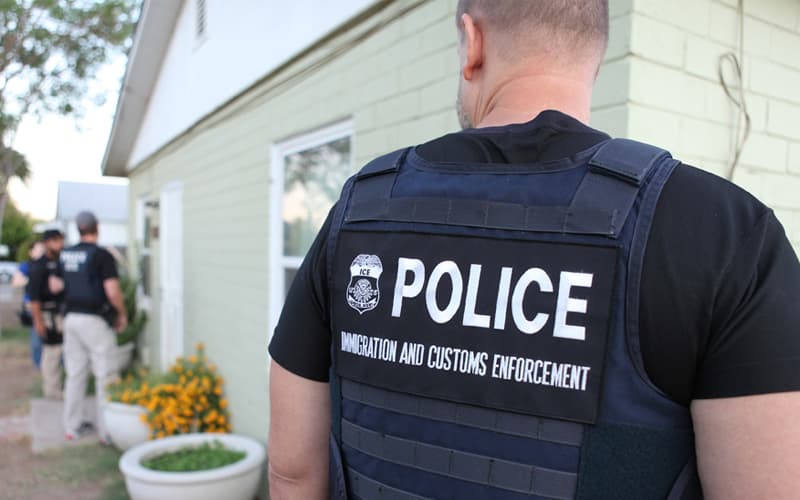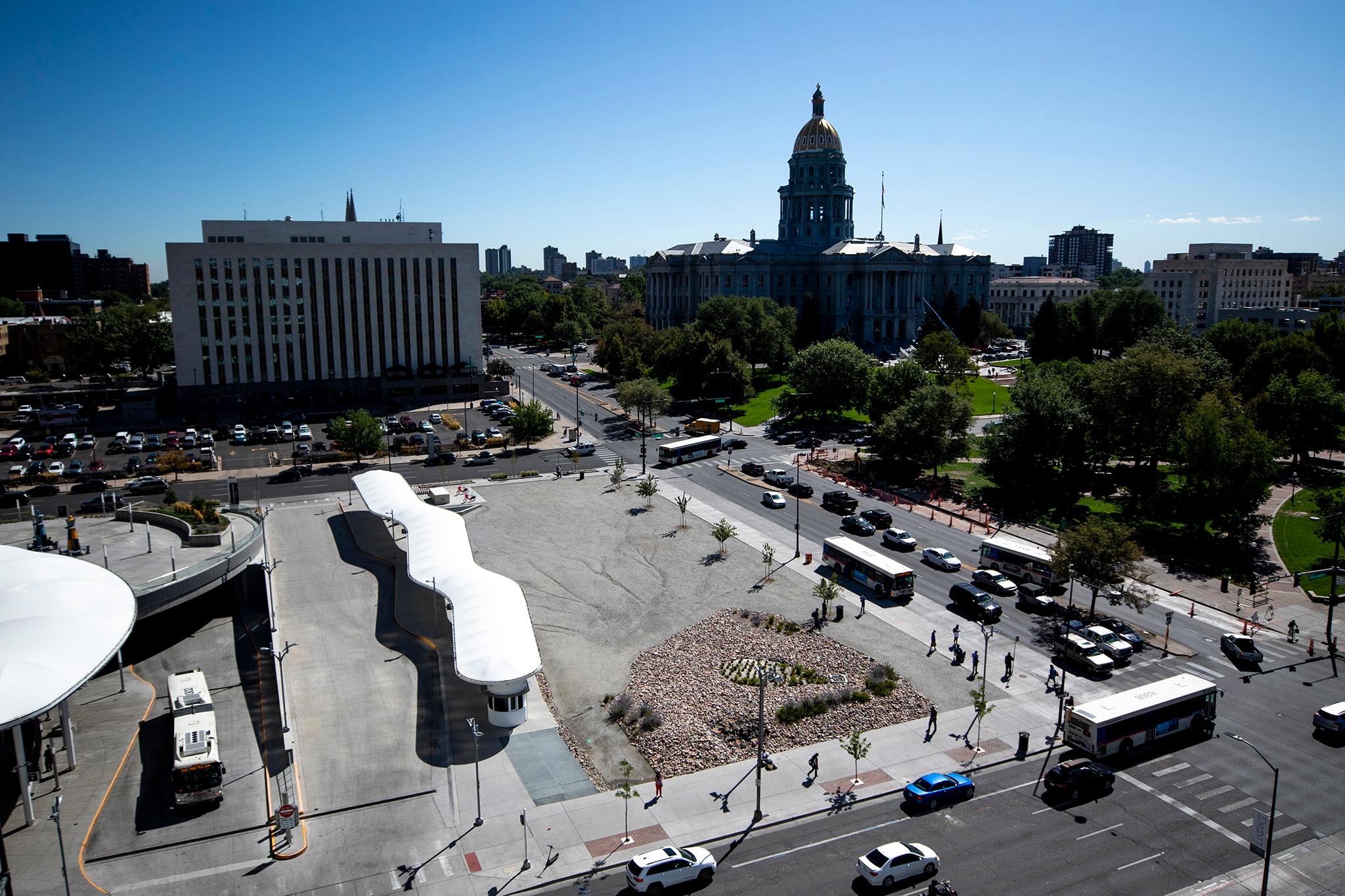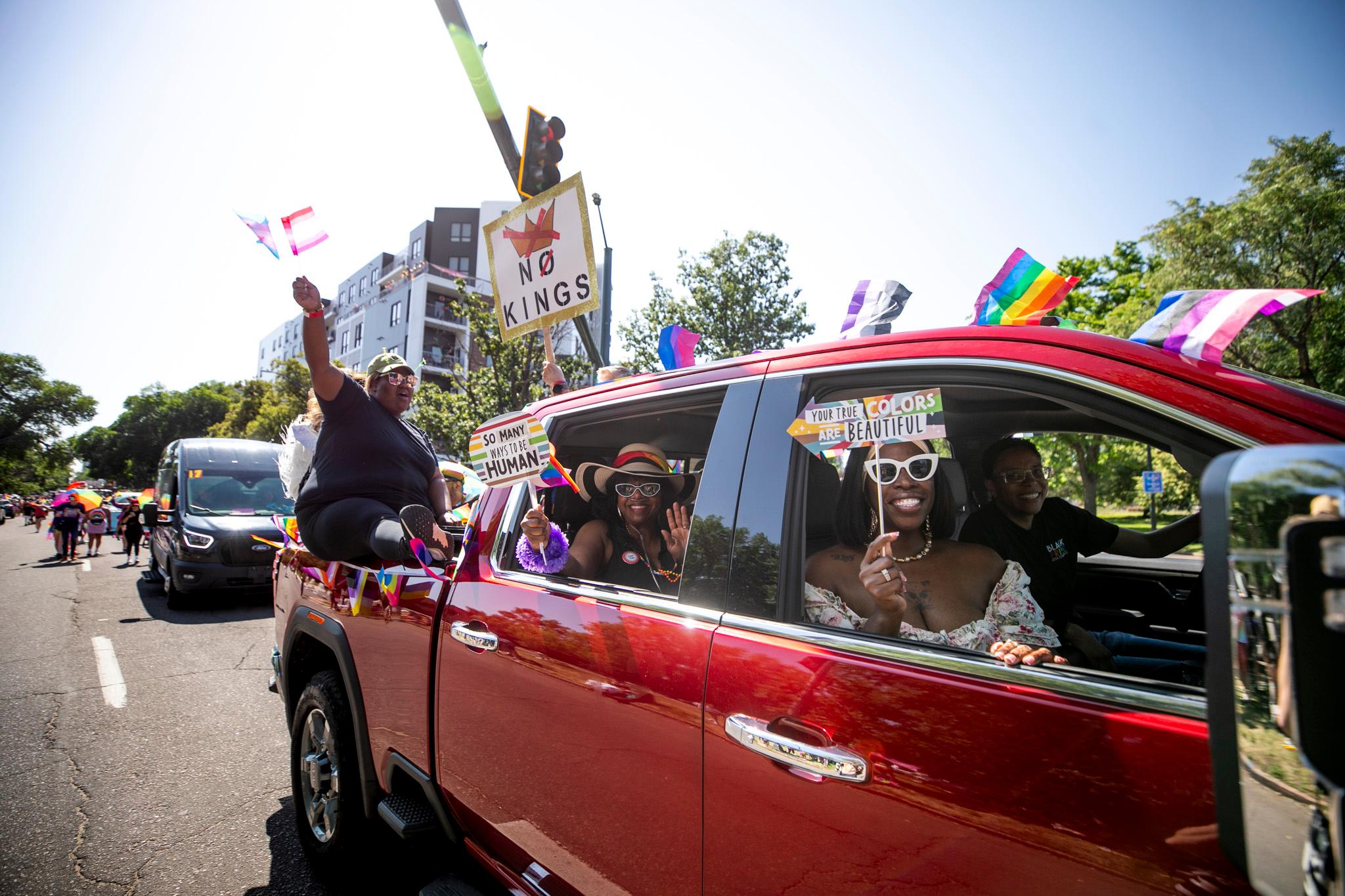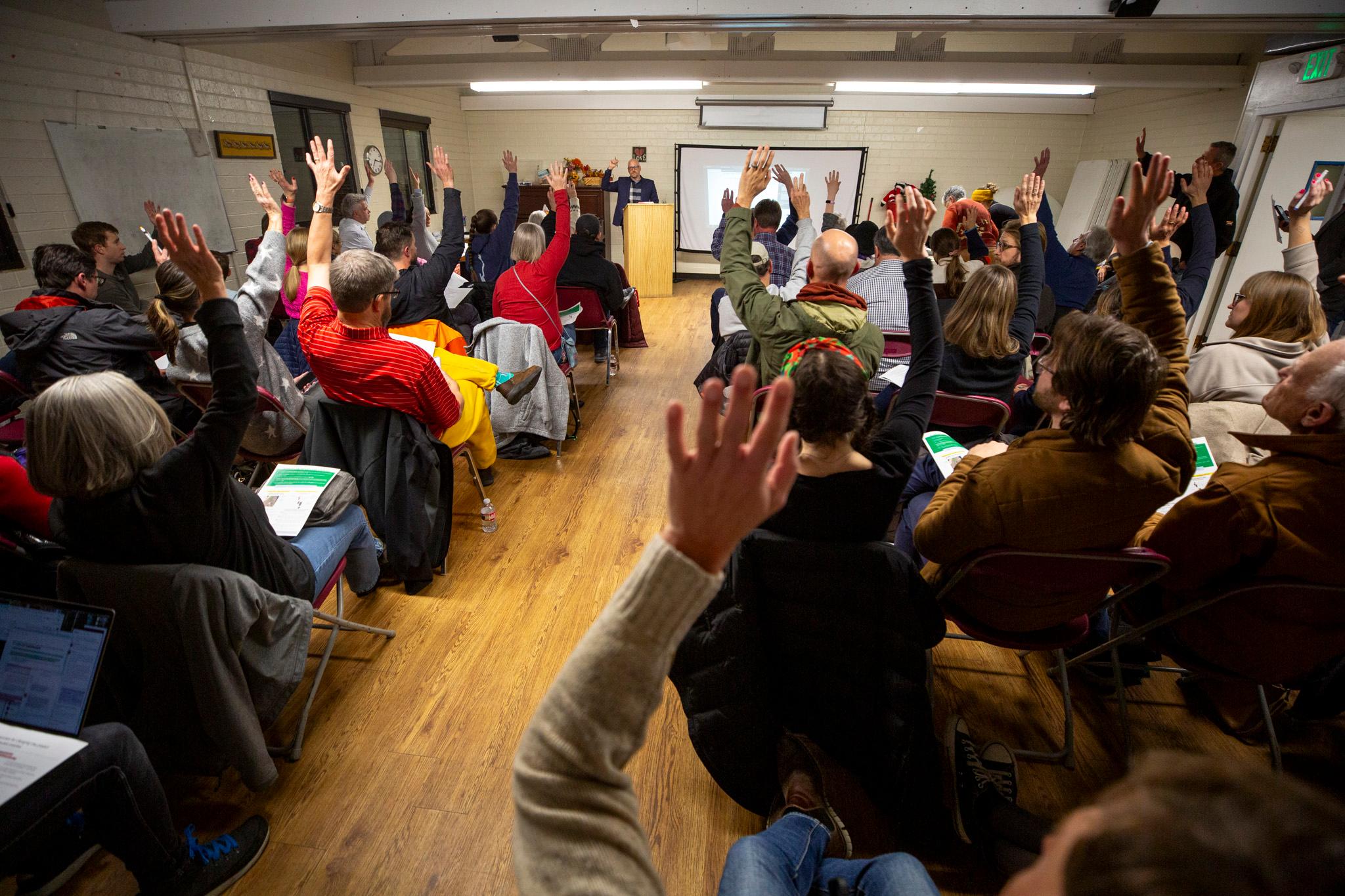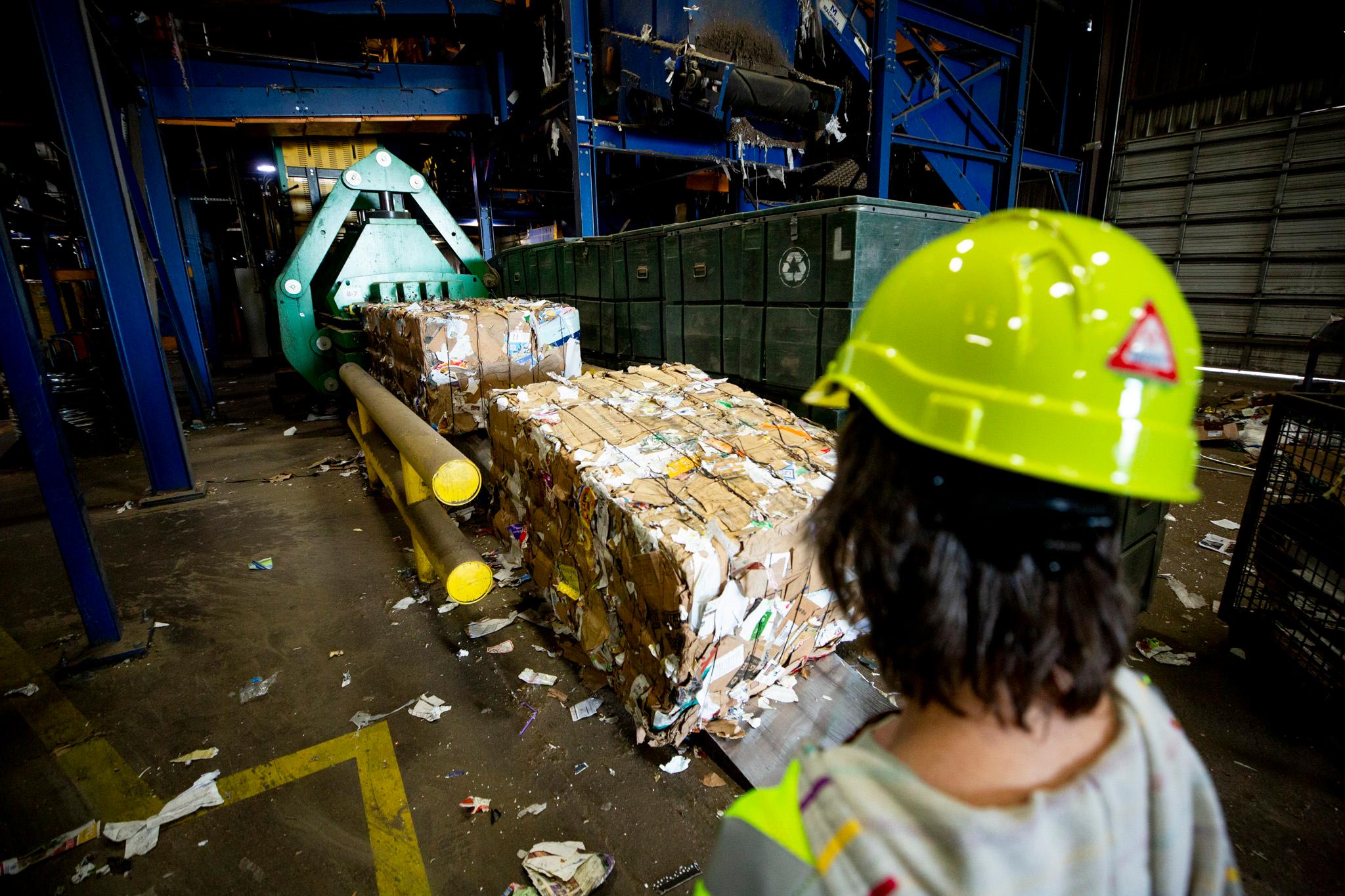Update: The executive order signed by Donald Trump would withhold ALL federal grants except those deemed necessary to law enforcement from cities that don't help with the implementation of federal law. This could open the executive order to a legal challenge.
Update Part the Second: Mayor Michael Hancock says Denver is not a sanctuary city.
President Donald Trump signed two executive orders Wednesday that follow through on his campaign pledges to build a wall along the Mexican border and cut off federal funding for so-called sanctuary cities. Those are cities where local law enforcement doesn't cooperate with immigration authorities, and Denver is one of them.
The Associated Press reported that the president signed the executive orders at a ceremony at the Department of Homeland Security. They jumpstart construction of a border wall (there are already some 700 miles of fences and walls along the 2,300-mile boundary, and you can see pictures of some of it here) and order the federal government to withhold money from cities and states that don't arrest or detain people on immigration charges.
White House Press Secretary Sean Spicer said the president was still working out how to deal with the Deferred Action for Childhood Arrivals or DACA program that gave some protections from deportation for illegal immigrants who arrived here as children. No action is expected on DACA today.
The executive orders follow through on Trump's campaign promises.
"Block the funding. No more funding. We will end the sanctuary cities that have resulted in so many needless deaths," he said during his major immigration speech in Phoenix. "Cities that refuse to cooperate with federal authorities will not receive taxpayer dollars."
On Wednesday afternoon, Trump's press secretary Sean Spicer said the executive order would move to "strip federal grant money from sanctuary states and cities."
Spicer said this was a "taxpayer issue," with money belonging to "the American people" being sent to cities that don't follow the law. It's not entirely clear what the scope of the order is, as "sanctuary city" is not a term with a legal definition, and the courts have put limits on the federal government's ability to use money to create policy on the state and local level. (Update: The executive order gives the federal government the ability to withhold all grant money except that necessary for law enforcement from cities the secretary of Homeland Security deems to be sanctuary cities.)
What makes Denver a sanctuary city?
The Washington Post had a helpful explanation recently, complete with flow charts of what happens when an immigrant is arrested and accused of a crime.
The fingerprints of people booked into county jails are shared with the FBI, who shares those fingerprints with Immigrations and Custom Enforcement. This information sharing is mandatory.
If a person is not in the country legally, ICE can submit a detainer request to local authorities. This is ICE asking the local jail to hold the person for 48 hours so the agency can get a warrant for deportation proceedings. Courts have repeatedly found that complying with these requests is not mandatory, and many cities and counties don't.
"We don’t hold people on civil matters," Denver Sheriff's Department spokesman Simon Crittle said in an email. "If someone is charged with a crime, they can be incarcerated. Immigration authorities might, or might not, be interested in some people charged with crimes. ... We don't believe we have the authority to hold someone on a civil matter."
The "civil matter" here would be whether the person has violated immigration laws.
That doesn't mean immigrants charged with crimes or convicted of them never have to deal with ICE. Advocates for immigrants' rights describe people being picked up by ICE at court proceedings and even meetings with probation officers. But it means the Denver jail won't hold people for ICE.
A lot of local law enforcement officials -- though by no means all of them -- say there are public safety reasons not to enforce immigration laws. They don't want people who have been victims or witnesses to crimes to be afraid to come forward because they might be deported.
How much money is at stake for Denver?
In 2015, Denver received a little more than $175 million in federal funding out of a total budget of $1.7 billion. The year-end audit for 2016 isn't complete yet. Some federal grants pay for ongoing programs, while others are one-time money to help with a certain project.
But it might be hard for a Trump administration to withhold ALL federal money. Legal experts point to the Supreme Court case South Dakota v. Dole, where the court ruled that for the federal government to withhold money, the money must be relevant "to the federal interest in the project."
That can be relatively broad. In the South Dakota case, the federal government was withholding highway money from states that didn't raise the drinking age to 21. The argument was that a higher drinking age reduces drunk driving and makes roads safer, and the court upheld that policy.
There's already a law that allows the federal government to withhold one particular grant that pays for jails to house people during the second phase of deportation proceedings. Denver got $500,000 from the State Criminal Alien Assistance Program in 2015. Denver didn't get this grant in 2016, according to the budget book.
Under this theory, the funding that's most at risk comes from Department of Homeland Security and the Department of Justice. That doesn't mean Trump might not aim to hold back more, of course.
Denver's 2017 budget calls for $223.7 million in spending on public safety, of which $1.75 million is expected to come from grants, including some state grants. Public safety received $3.75 million in grants in 2016.
Federal law enforcement grants include the Justice Assistance Grant, which funds a range of programs, including the victim services network out of the District Attorney's Office and the ShotSpotter program. That was $497,617 in 2016 and is expected to be $394,823 in 2017. Denver also received $159,217 in 2016 to clear backlogs of DNA testing and expects to receive another $109,820 in 2017.
Denver got $934,823 in 2016 from the High Intensity Drug Trafficking Area grant, which supports coordinated drug enforcement efforts in the region, and expects to get $256,645 in 2017.
Sen. Cory Gardner's office recently announced that Denver police would get $240,000 from the Department of Homeland Security to "counter violent extremism." The other federal grants to law enforcement come from the Justice Department.
There are other sanctuary cities in Colorado.
Among them are Aurora, which got $11.5 million in 2015, and Boulder, which got between $8 million and $9 million for the last three years. Some of Boulder's federal funding relates to ongoing flood recovery efforts going back to 2013, and just $126,800 went to the police department.
This is a developing story. I'll update this once the scope of the executive order is clear.

